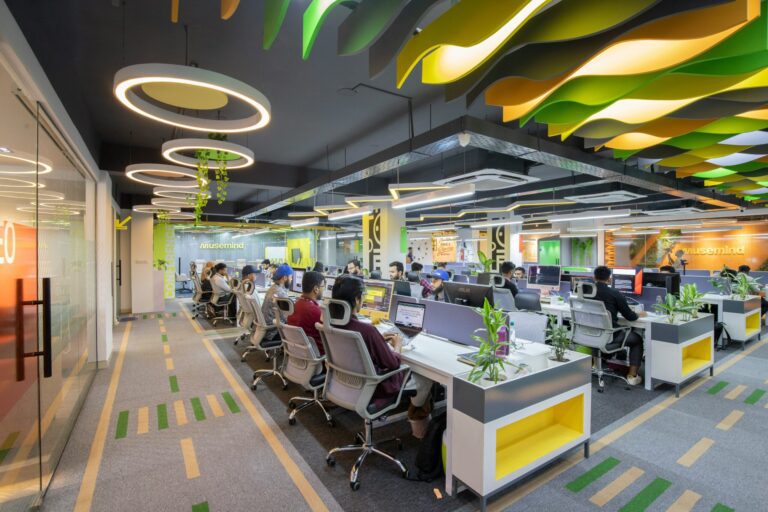As the commercial real estate market continues to evolve, one trend that has gained significant momentum in September 2024 is the rise of co-working spaces. With the shift towards hybrid and remote work models, businesses are increasingly looking for flexible leasing solutions, and co-working spaces have emerged as an attractive alternative to traditional office leases.
In major cities like New York, London, and Berlin, demand for co-working spaces surged as companies embraced hybrid models, with employees splitting their time between home and the office. Co-working spaces offer businesses a flexible solution, providing shared office environments that allow tenants to lease space on short-term contracts, often without the need for long-term commitments. This model appeals to startups, freelancers, and even larger companies that no longer require vast office spaces.
Co-working companies like WeWork and IWG saw substantial growth in new leases during the second half of 2024. These companies are able to offer a wide range of services, including flexible office layouts, high-speed internet, and access to meeting rooms, all included in one package. This convenience makes co-working spaces an attractive option for businesses looking to minimize overhead costs while maintaining access to high-quality office facilities.
For landlords, the rise of co-working spaces represents both a challenge and an opportunity. Traditionally, landlords offered long-term leases to tenants who signed multi-year agreements. With the increased demand for flexibility, many landlords have responded by converting underutilized office spaces into co-working environments. This shift has allowed landlords to secure tenants who prefer flexible terms, and in some cases, co-working spaces generate higher returns due to the premium pricing for short-term leasing.
From a tenant perspective, the key benefit of co-working spaces is flexibility. Tenants can lease office space on a month-to-month basis or for a few months at a time, providing them with the ability to adjust as their business needs evolve. Furthermore, the shared amenities and collaborative workspaces foster creativity and networking, which is a key draw for many small businesses and startups.
As the demand for co-working spaces continues to grow, the commercial leasing market will likely see even more landlords embracing this model. The long-term impact will be a shift towards greater flexibility in office leasing, as businesses continue to favor co-working environments over traditional long-term office commitments.
